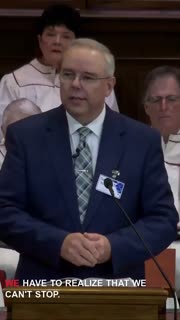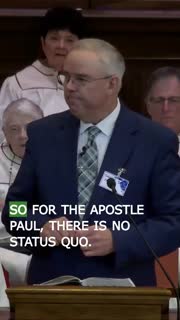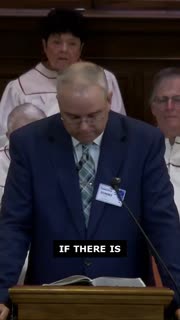Pressing On: The Journey to Christlikeness
Summary
### Summary
The Christian life is a journey from godlessness to godliness, a pilgrimage towards a meaningful relationship with God through Jesus Christ. This journey requires continuous progress and a commitment to growing in Christlikeness. Drawing from Philippians 3:10-14, we see the Apostle Paul's passion for spiritual growth and his strategy for achieving it. Paul emphasizes three key components: the necessity of moving forward, forgetting what is behind, and pressing on toward the goal.
Firstly, moving forward is essential. Paul, despite his significant contributions to Christianity, never considered himself to have "arrived." He recognized the need for constant growth and urged us to do the same. Stagnation is not an option; if we are not advancing, we are retreating. This forward momentum is crucial for spiritual growth.
Secondly, forgetting what is behind is vital. Paul left behind both his past achievements and failures. He sacrificed his promising future in Judaism to follow Christ and put his violent persecution of Christians behind him. This act of forgetting the past allows us to focus on the future and the goal ahead.
Lastly, pressing on toward the goal is imperative. Paul was relentless in his pursuit of Christlikeness, putting in effort, time, and resources. This dedication is necessary for spiritual growth. He likened the Christian life to a race, where perseverance and focus are key to reaching the finish line.
Paul's life and teachings remind us that the ultimate prize is knowing Christ and experiencing the power of His resurrection. This pursuit requires us to keep moving forward, forget the past, and press on with unwavering dedication.
### Key Takeaways
1. The Necessity of Moving Forward: Spiritual growth requires continuous progress. Even the Apostle Paul, with all his accomplishments, recognized the need to keep moving forward. Stagnation leads to regression; thus, we must always strive to advance in our relationship with God. [03:55]
2. Forgetting What is Behind: To grow in godliness, we must leave our past behind, both our achievements and failures. Paul sacrificed his promising future in Judaism and put his violent persecution of Christians behind him to follow Christ. This act of forgetting allows us to focus on the future and the goal ahead. [11:07]
3. Pressing On Toward the Goal: Spiritual growth requires relentless pursuit and dedication. Paul emphasized the importance of pressing on, putting in effort, time, and resources. This perseverance is necessary to reach the ultimate goal of Christlikeness. [16:12]
4. The Importance of Humility: Humility is crucial for spiritual growth. Paul, despite his significant contributions, never considered himself to have "arrived." We must acknowledge that we have more to learn and grow, just as Paul did. [06:00]
5. The Ultimate Prize: The ultimate prize in our spiritual journey is knowing Christ and experiencing the power of His resurrection. This surpassing greatness is worth all the sacrifices and efforts we make in our pursuit of godliness. [23:11]
### YouTube Chapters
[0:00] - Welcome
[01:35] - Introduction to Philippians 3
[02:51] - Paul's Passion for Progress
[03:55] - The Necessity of Moving Forward
[06:00] - The Importance of Humility
[07:42] - No Status Quo in Spiritual Growth
[10:02] - The Story of John Stephen Akwari
[11:07] - Forgetting What is Behind
[12:28] - The Example of Hernando Cortes
[13:50] - Turning Away from the Past
[15:08] - God's Forgiveness
[16:12] - Pressing On Toward the Goal
[18:11] - The Example of Emmet Smith
[19:44] - Christopher Columbus' Perseverance
[21:13] - The Monument in the Alps
[23:11] - The Ultimate Prize
[24:14] - Reflecting on Your Goals
[25:09] - Closing Prayer
Study Guide
### Bible Study Discussion Guide
#### Bible Reading
- Philippians 3:10-14 (NIV): "I want to know Christ—yes, to know the power of his resurrection and participation in his sufferings, becoming like him in his death, and so, somehow, attaining to the resurrection from the dead. Not that I have already obtained all this, or have already arrived at my goal, but I press on to take hold of that for which Christ Jesus took hold of me. Brothers and sisters, I do not consider myself yet to have taken hold of it. But one thing I do: Forgetting what is behind and straining toward what is ahead, I press on toward the goal to win the prize for which God has called me heavenward in Christ Jesus."
#### Observation Questions
1. What does Paul mean when he says he wants to "know Christ and the power of His resurrection"? ([01:35])
2. According to the sermon, why is it important to keep moving forward in our spiritual journey? ([03:55])
3. What are the two main things Paul says we need to forget in order to grow in godliness? ([11:07])
4. How does Paul describe his approach to pursuing the goal of Christlikeness? ([16:12])
#### Interpretation Questions
1. Why does Paul emphasize the necessity of moving forward in our spiritual lives? How does this relate to the concept of spiritual stagnation? ([03:55])
2. What might be some reasons Paul insists on forgetting what is behind, both achievements and failures? How can this be applied to our own lives? ([11:07])
3. How does the analogy of a race help us understand the Christian journey towards godliness? ([16:12])
4. What does Paul mean by the "ultimate prize" and how does this shape our understanding of the Christian life? ([23:11])
#### Application Questions
1. Reflect on your own spiritual journey. Are there areas where you feel stagnant? What steps can you take to keep moving forward? ([03:55])
2. Think about a past achievement or failure that you need to leave behind. How can you focus more on the future and the goal ahead? ([11:07])
3. Paul talks about pressing on toward the goal with relentless dedication. What are some practical ways you can show this kind of dedication in your daily life? ([16:12])
4. Humility is crucial for spiritual growth. How can you cultivate humility in your life, acknowledging that you have more to learn and grow? ([06:00])
5. The ultimate prize is knowing Christ and experiencing the power of His resurrection. How can you prioritize this pursuit in your life, even amidst daily distractions? ([23:11])
6. Identify one specific goal in your spiritual life. What practical steps can you take this week to move closer to achieving it? ([24:14])
7. How can you support others in your small group or community to keep moving forward in their spiritual journeys? What role can you play in encouraging them to press on toward the goal? ([10:36])
Devotional
Day 1: Continuous Spiritual Progress
The Christian journey is one of constant growth and forward momentum. Even the Apostle Paul, with all his accomplishments, recognized the need to keep moving forward. Stagnation leads to regression; thus, we must always strive to advance in our relationship with God. Paul’s life exemplifies the necessity of moving forward, as he never considered himself to have "arrived" but always pressed on towards greater Christlikeness. This forward momentum is crucial for spiritual growth and maintaining a vibrant relationship with God. [03:55]
Philippians 3:12-13 (ESV): "Not that I have already obtained this or am already perfect, but I press on to make it my own, because Christ Jesus has made me his own. Brothers, I do not consider that I have made it my own. But one thing I do: forgetting what lies behind and straining forward to what lies ahead."
Reflection: What is one specific area in your spiritual life where you feel stagnant? How can you take a step forward in that area today?
Day 2: Letting Go of the Past
To grow in godliness, we must leave our past behind, both our achievements and failures. Paul sacrificed his promising future in Judaism and put his violent persecution of Christians behind him to follow Christ. This act of forgetting allows us to focus on the future and the goal ahead. By letting go of what is behind, we free ourselves from the weight of past mistakes and the pride of past successes, enabling us to pursue Christ with a clear and focused heart. [11:07]
Isaiah 43:18-19 (ESV): "Remember not the former things, nor consider the things of old. Behold, I am doing a new thing; now it springs forth, do you not perceive it? I will make a way in the wilderness and rivers in the desert."
Reflection: Is there a past failure or success that you are holding onto? How can you release it to God and focus on the new things He is doing in your life?
Day 3: Relentless Pursuit of Christlikeness
Spiritual growth requires relentless pursuit and dedication. Paul emphasized the importance of pressing on, putting in effort, time, and resources. This perseverance is necessary to reach the ultimate goal of Christlikeness. Just as an athlete trains rigorously to win a race, we must be diligent and committed in our spiritual disciplines, continually striving to grow in our relationship with Christ. [16:12]
1 Corinthians 9:24-25 (ESV): "Do you not know that in a race all the runners run, but only one receives the prize? So run that you may obtain it. Every athlete exercises self-control in all things. They do it to receive a perishable wreath, but we an imperishable."
Reflection: What specific steps can you take this week to pursue Christlikeness more diligently? Consider your prayer life, Bible study, and acts of service.
Day 4: Embracing Humility
Humility is crucial for spiritual growth. Paul, despite his significant contributions, never considered himself to have "arrived." We must acknowledge that we have more to learn and grow, just as Paul did. Embracing humility allows us to remain teachable and open to the Holy Spirit’s guidance, recognizing that our journey towards godliness is ongoing and that we are always in need of God’s grace and wisdom. [06:00]
James 4:10 (ESV): "Humble yourselves before the Lord, and he will exalt you."
Reflection: In what areas of your life do you struggle with pride? How can you practice humility and acknowledge your need for God’s guidance and growth?
Day 5: The Ultimate Prize
The ultimate prize in our spiritual journey is knowing Christ and experiencing the power of His resurrection. This surpassing greatness is worth all the sacrifices and efforts we make in our pursuit of godliness. Paul’s life and teachings remind us that the ultimate goal is not earthly success or recognition, but a deep and intimate relationship with Jesus Christ, which brings true fulfillment and eternal reward. [23:11]
Philippians 3:8-9 (ESV): "Indeed, I count everything as loss because of the surpassing worth of knowing Christ Jesus my Lord. For his sake I have suffered the loss of all things and count them as rubbish, in order that I may gain Christ and be found in him, not having a righteousness of my own that comes from the law, but that which comes through faith in Christ, the righteousness from God that depends on faith."
Reflection: What sacrifices are you willing to make to deepen your relationship with Christ? How can you prioritize knowing Him above all else in your daily life?
Quotes
1. "You know, the Christian life is a journey. It's a pilgrimage, if you will, from godlessness to godliness, from a barren, meaningless existence apart from God to a full and meaningful life, a full and meaningful relationship with God through the Lord Jesus Christ, who is our perfect example of godliness and holiness. It's a process that we are engaged in. We are all at various points along the way, but God willing, we're all moving in the same direction." [00:10] (44 seconds)
2. "We have to realize that we can't stop. We have to continue moving forward in progress. Paul was doing that very thing. He never considered himself to have arrived, so to speak. In verse 12, he says, Not that I have already obtained all this, or have already been made perfect. Beginning of verse 13, he says, Brothers, I don't consider myself yet to have taken hold of it. And I find it interesting that the great Apostle Paul, this champion of the faith, the inspired author of 23% of our New Testament, the one person most responsible for the Christianization of the Greco-Roman world, Saint Paul, did not make any pretense of having made it already, or having arrived, or having some kind of superiority over us ordinary pilgrims on the pathway." [03:55] (66 seconds)
3. "Even the great Saint Paul knew that he was constantly being called to a higher level of commitment to Christ, a more intimate relationship with God. In verse 14, he calls it the upward call of God in Christ Jesus, or as the NIV translates it, the heavenward call of God. Now if Paul recognized the need to constantly move forward in godliness, how much more should we? If he felt the need for that, certainly we should, shouldn't we? Certainly we should be devoted to that task." [04:58] (41 seconds)
4. "So have the humility that Paul had, and admit that you just might not know all of it yet. That you just might have more to learn. It's not possible to teach anything to someone who already knows everything. So have a little humility and acknowledge that we all, no matter who we are, if the Apostle Paul had need to continue growing, certainly we do too. Certainly we should be on the pathway as well. Because those who fail to move forward in making some progress and growing in godliness and Christ-likeness, they're actually losing ground and falling back. If you're not growing, you're dying. If you're not advancing, you're retreating." [06:00] (53 seconds)
5. "So for the Apostle Paul, there is no status quo. There is no resting on one's laurels. You have to continue to move forward. No goal can be reached if you stop, if you get distracted, if you turn aside from the pursuit of the goal. You will never reach that goal." [07:42] (25 seconds)
6. "And in the same way, God doesn't call us simply to start down the road of discipleship. He calls us to continue to move forward, toward the prize, to persevere, to keep putting one foot in front of the other. In spite of whatever may come our way, in spite of whatever injury we may suffer, or whatever pain we may endure, He calls us to keep moving forward. Onward. Upward. Because it's the only way we can win the prize for which God has called us heavenward in Christ Jesus. To grow in godliness, recognize the absolute necessity of continuing to move forward." [10:36] (45 seconds)
7. "To grow in godliness, you also have to forget what is behind. Paul makes that clear in verse 13. Forgetting what is behind and straining toward what is ahead, he says. He'd put the past behind him. Both the good and the bad. Last week we looked at some of the good things that Paul had turned away from, that he had sacrificed in order to pursue Christ, to know Christ. You can read about it if you like back in verses 4, 5 and 6 of chapter 3. But he left it all. He was a rising star in Judaism. He had a bright future ahead of him. He was going to be respected. He was going to be a leader among his people. And he left it all to follow Christ. For Paul there was no retreat. No surrender. He forgot what was behind. He put it behind him and strained forward to what was ahead. He was never going back." [11:07] (67 seconds)
8. "There may be good things that are standing between you and the progress you desire to make as a follower of Christ, as his apprentice. Maybe some things you need to turn away from or leave behind in order to follow Christ. But following Christ, Paul would tell you, is the best thing. You can turn from the good if you turn toward the best. Paul had done that." [13:11] (28 seconds)
9. "You need to put your failures behind you, your mistakes, your sins, your shortcomings, put them behind you in the past where they belong and strain toward what is ahead. It doesn't matter what you've done, what grievous sin you may have committed. If you've asked God to forgive you, guess what? God has forgiven you. There is a promise in the Scripture. If we confess our sins, God is faithful and just to forgive us our sins and to cleanse us from all unrighteousness. Receive that forgiveness, put it in your past, and forget it. Turn instead toward the future, what lies ahead. To grow in godliness, you've got to forget what's behind you." [15:08] (53 seconds)
10. "If there is anything predominant in this text, it is that Paul is pressing on toward the goal to win the prize. In verse 12 he says, I press on. That word can also mean I pursue. I chase it. I'm after it. I keep going. I press on. In verse 13 he speaks of straining toward what is ahead. He's putting effort into it. He's putting time into it. Energy into it. Resources into it. That's what it means to pursue and press on toward a goal. Again in verse 14 he says, I press on. I think we get the picture. He's very explicit about it. Even for this greatest of saints, spiritual growth requires a constant dedication and perseverance. A constant attention to following the upward call of God. And Paul was focused on it. He says, This one thing I do. That's a focus. This one thing I do. I press on." [16:12] (72 seconds)










